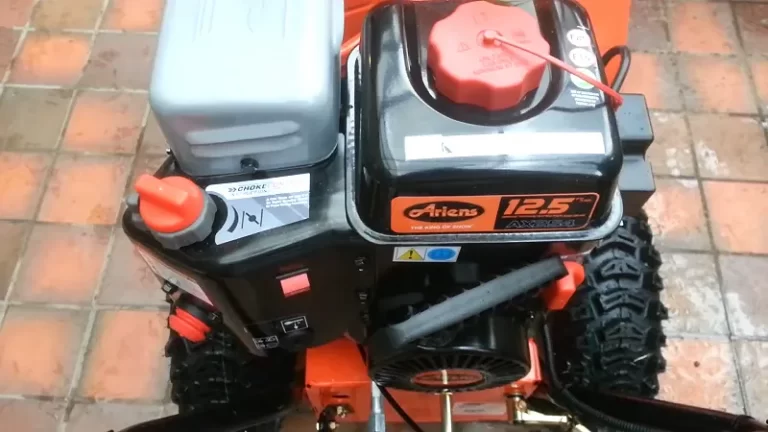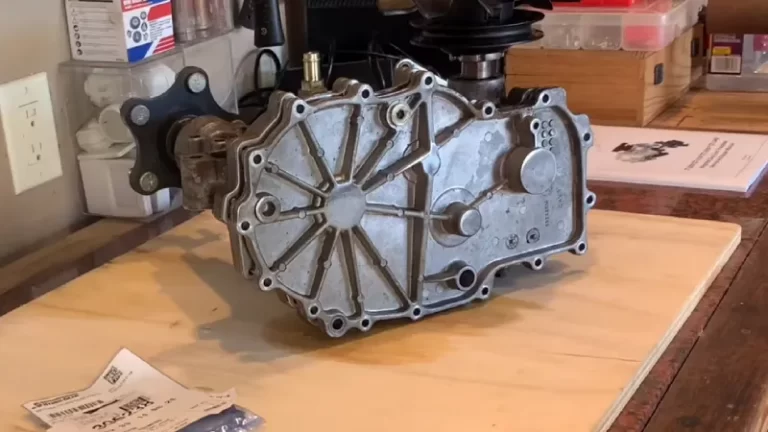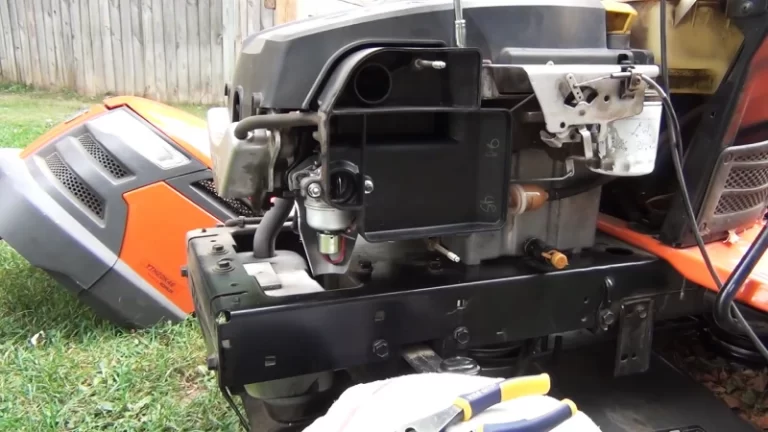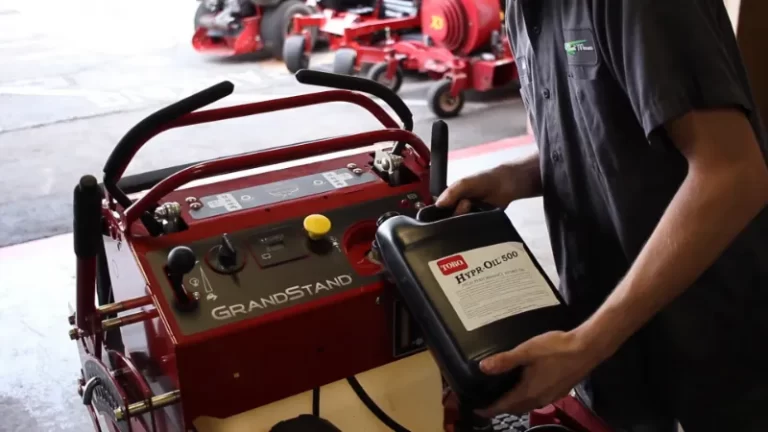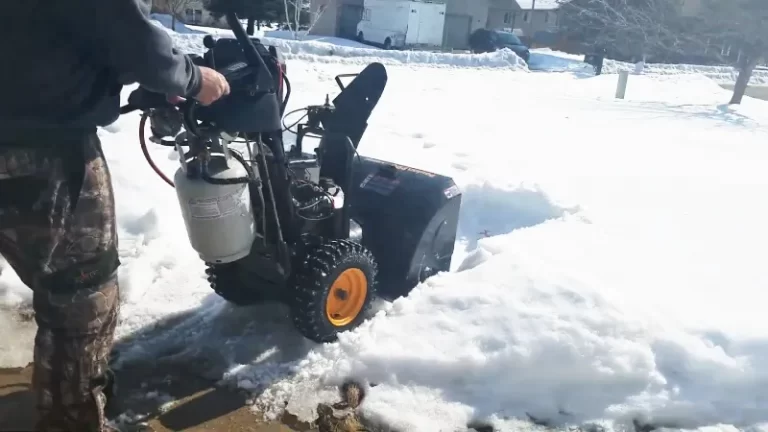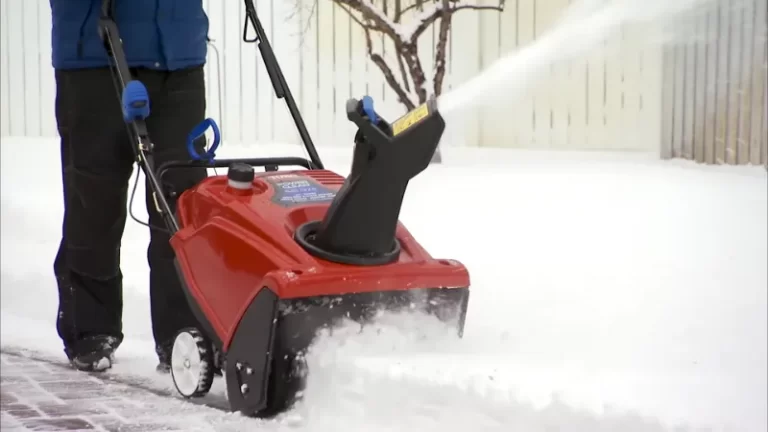Why is My Kohler Engine Getting Too Much Fuel?
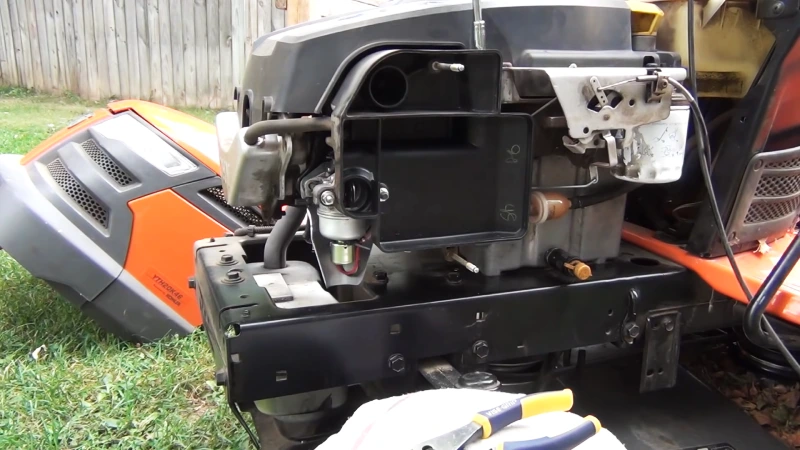
If you own a Kohler engine, you may have experienced the frustration of it getting too much fuel, also known as “flooding.” This can lead to issues with starting the engine, as well as poor performance when it is running.
There are a variety of potential causes for flooding in Kohler engines, including faulty fuel pumps, stuck floats in the carburetor, and malfunctioning fuel injectors. In this article, we will explore the common causes of flooding in Kohler engines and provide some tips for addressing this issue.
You'll Learn About
Kohler Engine Getting Too Much Fuel
Kohler engines, like any other engine, can experience issues with getting too much fuel. This is often referred to as “flooding.” Flooding can occur for a variety of reasons, such as a faulty fuel pump, a stuck float in the carburetor, or a malfunctioning fuel injector.
If you are experiencing flooding with your Kohler engine, the first thing you should do is identify the problem. This may involve checking for fuel leaks, inspecting the fuel pump and fuel filter, and checking the carburetor or fuel injection system for any visible issues.
Once you have identified the problem, there are a few steps you can take to try and resolve the issue. If you suspect a problem with the fuel pump or fuel filter, you may want to try replacing these components. If the issue appears to be with the carburetor or fuel injection system, you may need to disassemble and clean these components, or replace them if they are damaged.
It is important to follow all safety precautions when working on your engine, and to consult a professional if you are unsure of how to proceed. By properly diagnosing and addressing the issue, you should be able to get your Kohler engine running smoothly once again.
Identifying the Problem
If you are experiencing flooding with your Kohler engine, the first step in addressing the issue is to identify the problem. One way to do this is by checking for fuel leaks. This can be done by visually inspecting the fuel lines and connections for any signs of dripping or leaking fuel.
Fuel Leak
If you suspect a fuel leak, it is important to fix it as soon as possible to prevent further issues with flooding.
Fuel Pump and Fuel Filter
Another way to identify the problem is by inspecting the fuel pump and fuel filter. The fuel pump is responsible for delivering fuel from the tank to the engine, while the fuel filter helps to remove any impurities from the fuel.
If either of these components is malfunctioning, it can lead to excess fuel being delivered to the engine. You may need to replace the fuel pump or fuel filter if they are damaged or not functioning properly.
Carburetor or Fuel Injection System
Finally, you should also examine the carburetor or fuel injection system for visible issues. If the carburetor has a stuck float or a malfunctioning needle and seat, this can cause flooding. Similarly, a malfunctioning fuel injector can also cause excess fuel to be delivered to the engine.
Identifying and addressing any issues with these components can help to resolve the flooding problem.
Possible Solutions
Once you have identified the problem causing your Kohler engine to flood, there are a few potential solutions you can try to resolve the issue.
Replace the Fuel Pump or Fuel Filter
One option is to replace the fuel pump or fuel filter. If either of these components is damaged or not functioning properly, replacing it with a new one may help to resolve the flooding issue.
Clean the Carburetor or Fuel Injection
Another solution is to disassemble and clean the carburetor or fuel injection system. If debris or other contaminants have accumulated in these components, it can cause problems with fuel delivery. Disassembling and cleaning these components can help to restore their proper function.
Replace the Carburetor or Fuel Injection
If the carburetor or fuel injection system is damaged beyond repair, you may need to replace these components. This can be a more expensive solution, but it may be necessary if the damage is too severe to be repaired.
It is important to follow the manufacturer’s instructions and use proper tools and safety precautions when working on your engine. If you are unsure of how to proceed, it is always a good idea to seek the assistance of a professional mechanic.
Tips for Preventing Flooding in the Future
To prevent flooding from occurring in the future with your Kohler engine, there are a few simple steps you can take.
Proper Fuel Levels
One tip is to maintain proper fuel levels in the tank. If the fuel level is too low, air can enter the fuel lines and cause problems with fuel delivery.
On the other hand, if the fuel level is too high, fuel can overflow and cause flooding.
Preiodically Replacing the Fuel Filter
Another way to prevent flooding is by regularly replacing the fuel filter. The fuel filter helps to remove impurities from the fuel, and it can become clogged over time. Replacing the fuel filter on a regular basis can help to ensure that clean fuel is being delivered to the engine.
Proper Storage
Proper storage of your engine during periods of non-use can also help to prevent flooding. If the engine will not be used for an extended period of time, it is a good idea to store it with a full tank of fuel. This can help to prevent the formation of condensation in the fuel tank, which can lead to fuel contamination and flooding.
More Things to Check
- Check the fuel for any water or contaminants. If the fuel you are using is contaminated, it can lead to problems with the engine’s performance, including flooding. Make sure to use fresh, clean fuel to help prevent issues.
- Use a fuel stabilizer if you will be storing the engine for an extended period of time. Fuel stabilizers help to prevent the fuel from breaking down and going bad, which can lead to problems with the engine.
- Regularly inspect and clean the fuel tank. If the fuel tank becomes dirty or corroded, it can lead to problems with fuel delivery. Cleaning the tank and removing any debris can help to prevent issues with flooding.
- Check the fuel lines for any cracks or damage. If the fuel lines are damaged, fuel can leak out and cause problems with the engine. Make sure to check the fuel lines regularly and replace any damaged lines as needed.
- Check the spark plug to ensure it is functioning properly. If the spark plug is dirty or damaged, it can cause the engine to flood. Clean or replace the spark plug as needed to help prevent this issue.
By following these simple tips, you can help to ensure that your Kohler engine runs smoothly and avoids issues with flooding.
Conclusion
In conclusion, if your Kohler engine is experiencing flooding, it is important to identify the problem and take steps to resolve it. This may involve replacing the fuel pump or fuel filter, disassembling and cleaning the carburetor or fuel injection system, or replacing damaged components.
Proper maintenance, such as regularly replacing the fuel filter and properly storing the engine during periods of non-use, can also help to prevent flooding from occurring in the future. If you are unsure of how to address the issue, it is always a good idea to seek the assistance of a professional mechanic.
While troubleshooting your engine, consider other maintenance tasks. For example, learning about Kohler engine identification can help you find the right parts. Additionally, exploring Toro Hypr Oil 500 substitutes can ensure your equipment runs smoothly. For more tips, check out our guide on fixing an Ariens Deluxe 28 that won’t start.

